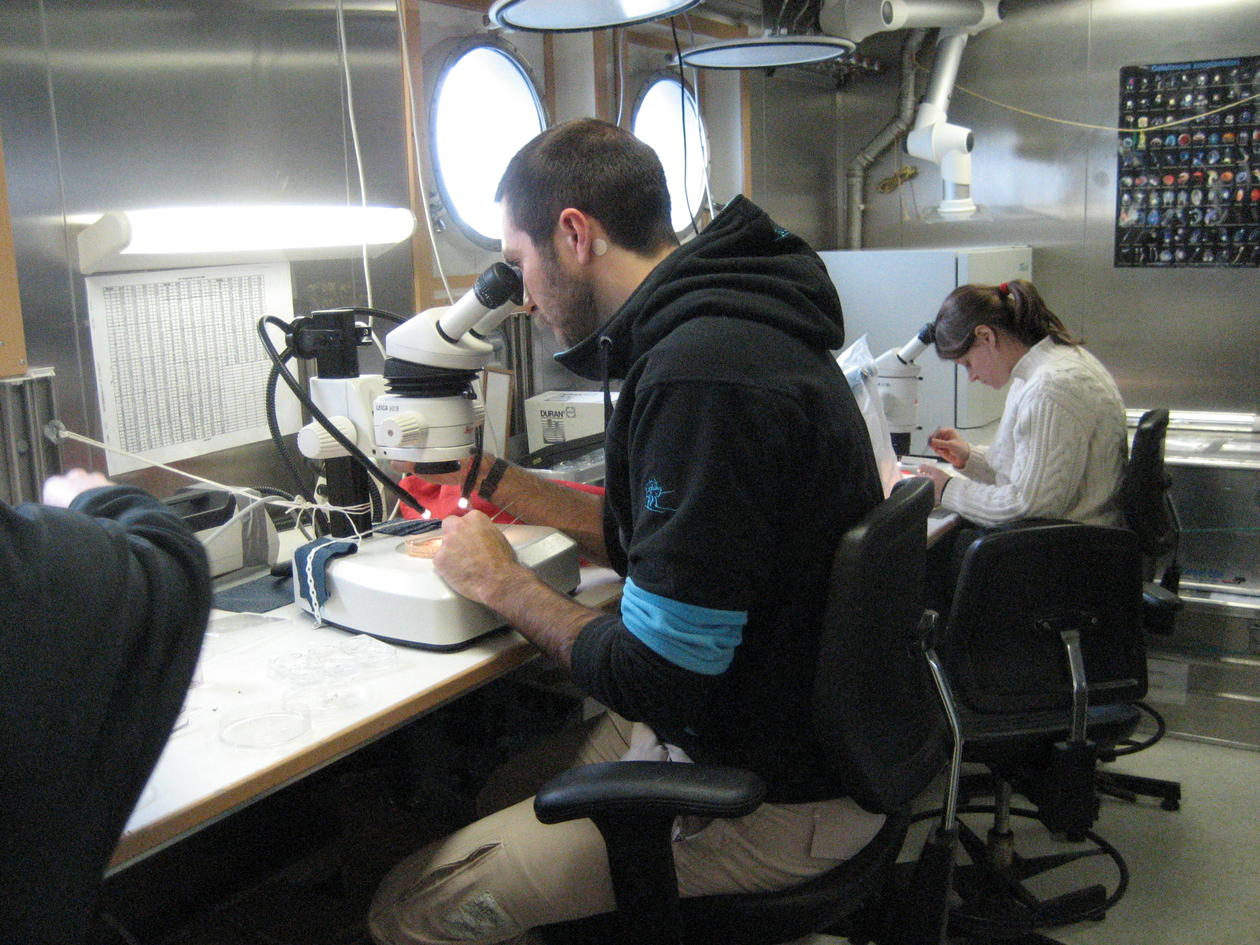DAY 13: SCIENCE IS HARD WORK!
11.07.2008 Tired faces watch the screens in the control room after a long night, hoping for good signals.

Main content
text by Courtney Flanagan and photos by Anne Karin Wallace
On this cruise I have come to learn a great deal about science. In fact I will be sorry when my "summer course" in "biogeology" comes to an end. I have also observed what seem to me to be the particular challenges of being a research scientist.
There are of course lots of plusses: travel, pursuing one's own passions, the excitement of discovery, living in a world that is an international mix of people with all sorts of interests and expertise and creativity.
There are however challenges.
For starters, there is a constant need to work on grants, to get funding to pursue those passions. Most of the senior scientists seem to be salaried at a university or research center, but they still have to seek funding to pursue their primary research goals. It is one area in which scientists and artists have a great deal in common!
Scientific cruises like the one we are on cost a great deal of money, and good weather on a ship can't be counted on, so time for explorations is precious. The constant whir of the CTD going up and down has become a part of our waking and sleeping sound environment. And of course what this all means is that scientists pull many "all nighters." These are not just the younger grad students either who are keeping these hours. Add to that the problem of seasickness, having to do a job on a pitching boat outside on the deck, and you can see that this profession is not for the faint of heart.
Then there are the long hours in the lab. Though the collaborative, teamwork aspects of the profession are important, no scientist escapes the need for doing many, many often repetitive, careful procedures alone in the lab. We can see that on this ship as we are looking for the thermal vent. Measurement after measurement is taken with the CTD, night and day, as we travel back and forth over small distances trying to pinpoint the exact location of a vent. And that brings up another more emotional challenge of this career:
Readings are taken that seem incredibly hopeful. Voices rise; tired faces break out in smiles; many of us huddle in the viewing room watching nervously as the ROV searches the depths; the scientists in charge of the dive are glued to the computer readouts in the control room. Discovery means not only personal satisfaction and reward for all those long, slow hours in the lab or at the computer, but also recognition which may result in better financing for future projects. And then nothing happens. Hopes rise; hopes plummet.
So, this profession clearly attracts men and women of passion and curiosity, and it does give the rewards of travel, of teamwork, of working with people from different cultures and backgrounds, and of the excitement of discovery. It is however also hard on the body at times, and hard on the heart. Throughout it all however, at least on this cruise, sense of humor and camaraderie always remain
